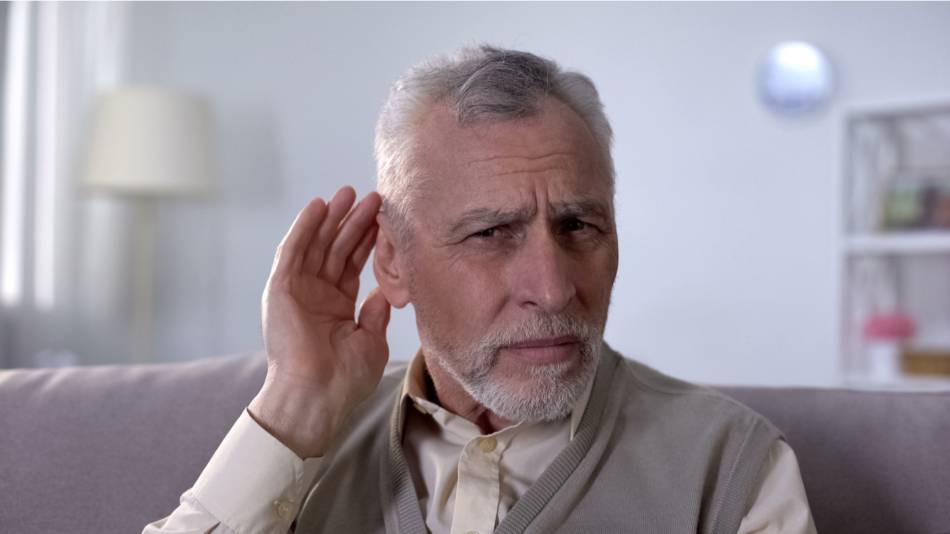
Answer:
There is no evidence that any supplement can help treat hearing loss. Deficiencies in some vitamins and minerals (including folate and vitamins B-12 and D) have been associated with greater risk of developing hearing loss, but supplementing with these nutrients has not been shown to prevent hearing loss related to aging, although there is preliminary evidence that some supplements may help prevent noise-induced hearing loss.
Supplements that have been evaluated to prevent hearing loss include alpha-lipoic acid, magnesium, N-acetyl-cysteine, and vitamins C and E. Details are below, along with information about Advanced Hearing Formula, a supplement marketed for ear health.
Supplements considered for preventing age-related hearing loss
Alpha-lipoic acid does not appear to be beneficial for treating age-related hearing loss. Although it has shown promise for preventing age-related hearing loss in animal studies, there are no studies confirming these benefits in humans.
Vitamin D deficiency has been linked with a greater risk of hearing loss of low-pitch sounds and speech frequency, although not of loss of high-pitch sounds, which is the more common. However, there do not appear to be studies showing that supplementing with vitamin D prevents, or reverses, age-related hearing loss.
Similarly, hearing assessments among older women (average age 65) found that those with impaired hearing had lower levels of vitamin B-12 and folate compared to those who had normal hearing. However, there is no evidence that supplementing with these vitamins helps prevent or treat age-related hearing loss.
Supplements considered for preventing for noise-related hearing loss
Noise-induced hearing loss occurs when hair cells — sensory cells for hearing found in the inner ear — are damaged due to excessively loud noise. There is some evidence that exposure to loud noise decreases blood flow in the inner ear and increases the concentration of calcium in hair cells, which increases cell death (Alvarado, Front Cell Neurosci 2020).
Based on its vasodilator effects and ability to regulate the influx of calcium into hair cells, there has been interest in magnesium for preventing noise-induced hearing loss. Two studies among young men have shown that supplementing with magnesium (as magnesium aspartate) for about two weeks prior to and, in one study, during, periods of noise exposure somewhat reduced the incidence and severity of noise-induced hearing loss.
There is also some evidence that excessively loud noise increases the formation of free radicals in cells, which causes cell damage and eventual cell death. This is believed to be a significant contributing factor to noise-induced hearing loss (Alvarado, Front Cell Neurosci 2020). Consequently, there is interest in antioxidant supplements, which target free radical overproduction, to help prevent this condition, although, as discussed below, none has been proven to be helpful.
Glutathione was one of the first antioxidants evaluated in laboratory research for hearing loss. While it showed promise in animal studies, no studies supporting its use in humans have been conducted (Alvarado, Front Cell Neurosci 2020). For details about conditions for which glutathione has been evaluated in humans, see our CL Answer about glutathione.
N-acetyl-cysteine (NAC), which is converted to the antioxidant glutathione, has been evaluated in humans, but results have been mixed. It is possible that individuals with certain genotypes that make them more prone to oxidative stress may experience greatest benefit from NAC. However, this needs to be confirmed in larger studies.
Alpha-lipoic acid also acts as an antioxidant. There is mixed evidence as to whether alpha-lipoic acid prevents noise-induced hearing loss. Higher quality studies are needed to confirm.
There has been some interest in vitamin C and vitamin E for preventing noise-induced hearing loss based on the antioxidant effects of these vitamins. However, a clinical study showed no benefit for noise-induced hearing loss prevention among adults who supplemented with 18 mg of beta-carotene, 500 mg of vitamin C, 305 mg of vitamin E (as alpha-tocopherol acetate), and 287.26 mg of magnesium citrate daily for 3 days prior to loud music exposure (95 dBA, which is about the sound of a motorcycle engine) (Le Prell, Audiol Neurotol Extra 2016).
Advanced Hearing Formula
A product that contains many of the ingredients discussed above and is marketed for supporting healthy circulation and nerve function in the ear is Advanced Hearing Formula by Advanced Bionutritionals. A suggested daily serving is listed as providing 826 mcg RAE of vitamin A, 75 mg of vitamin C, 16.529 mg of vitamin E, 15 mg of niacin, 200 mcg of folic acid, 50 mcg of vitamin B-12 (as methylcobalamin), 29 mg of calcium (as tricalcium phosphate), 37.5 mg of magnesium (as magnesium glycinate chelate), 10 mg of zinc (as zinc bisglycinate chelate), 100 mg of alpha-lipoic acid, 60 mg of ginkgo extract, 250 mg of green tea, 25 mg of luteolin, 250 mg of N-acetyl-cysteine, and 160 mg of acetyl-L-carnitine. Many of these ingredients have not been investigated for hearing loss, and some that have (such as vitamins C and E) have shown no benefit (as noted above). Lower levels of vitamin B-12 and folate have been linked with age-related hearing loss, but it is unclear if supplementing with these vitamins helps prevent this condition. Although magnesium, N-acetyl cysteine, and alpha-lipoic have shown evidence of benefit for preventing noise-induced hearing loss in some, but not all, studies, doses used in those studies were higher than the amounts in Advanced Hearing Formula. It is unclear if the lower doses would have any benefit. Some of the ingredients — including ginkgo, zinc, and vitamin B-12 — have been evaluated for tinnitus but do not appear to be beneficial (see our CL Answer about tinnitus for more details).
Join today to unlock all member benefits including full access to all CL Answers and over 1,400 reviews.
Join NowAlready a member? Sign In Here.
Join now at www.consumerlab.com/join/








Submit your comment
This feature is restricted to active members.
Join now to add comments and get all member benefits, including over 1,400 reviews.
Join NowAlready a member? Sign in here.